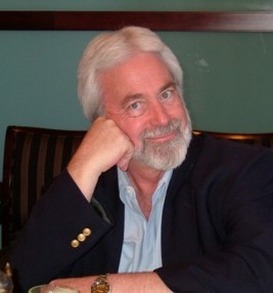 Last night, October 2, 2012, ASPH Emeritus President, Robert J. O’Connor was the featured speaker and presenter on “Quantum Principles — With Volunteer Demonstrations.”
Last night, October 2, 2012, ASPH Emeritus President, Robert J. O’Connor was the featured speaker and presenter on “Quantum Principles — With Volunteer Demonstrations.”
As always, Robert shows the rest of us what Hypnosis can do… how powerful it is for addressing a broad range of issues and for solving problems, i.e., getting permanent results.
Without the use of drugs and with no intervention other than a mere touch on the forehead, wrist, hand or shoulder, Hypnotherapy goes to the core of the issue that is troubling a client and causing unwanted symptoms: pain, insomnia, fatigue, ill humor, moodiness, and often serious chronic and acute physical illnesses and disorders. If one truly believes and understands that “everything is mental” and we are “quantum beings,” as Robert points out, why shouldn’t it be possible to “do a virus sweep in the subconscious part of the mind”—the “hard drive that runs our programs” and is the source of our physical, mental, emotional and spiritual stress and distress? And then, to replace the old, abusive, viruses with fresh, new outlooks—programs that are positive—healthy, joyous, and exciting.
By this time, most ASPH members know that Robert is not only experienced and skilled as a therapist; he is also a genius with highly developed intuitive abilities. Perhaps the most important quality he gives to his sessions is total devotion to his client. In the shamanistic tradition, he is “right there” with the client, seeing, feeling and experiencing their issues with them. For Robert it is so easy; for those who witness his work, it seems magical.
As an expert counselor and listener, he drills deep and does not allow for excuses. “There are no victims on this planet,” is one of his favorite expressions. And because of these two factors: total devotion and a commitment to honesty from his clients—courage to face the issue head-on and see it how it really is—Robert’s success rate is close to 100%.
The only reason for any type of pullback or return to previous undesirable states is when a client either chooses to stay in the same place of denial, in their “comfort zone” in order to continue to receive the pay-off (benefits of being a “poor me,” getting more attention than others, or fear of becoming independent and self-sufficient); or when a client is simply closed to their personal ability to make changes, get well, release the addiction, make amends when necessary, etc.
Both reasons are integrally related. Either you want to get well and experience ultimate joy with the potential to be and do and have everything you desire, or you want to say where you are: stuck, miserable, sick, and in conflict with yourself and others.
Over the years, Robert has discovered that when he has opened the door or “turned on the light” for a person and serious life-threatening issues have disappeared, the person may prefer to check out and die after all. It is always their choice, not the therapist’s. When a tumor or other physical malfunction has disappeared or corrected itself but the person chooses to go back to their former “poor me” or “invalid” zone of operation, most likely the tumor will reappear.
Robert’s three demonstrations during his presentation were invaluable to attending members, whether actively practicing Hypnotherapy or using in the myriad of ways it supports our daily function by improving attitudes, outlooks and our “quantum” perception of time and space, i.e., the Bigger Picture.
I know other ASPH members share my gratitude for this extraordinary evening.
—Carol Adler, CHt, Emeritus Member, ASPH
